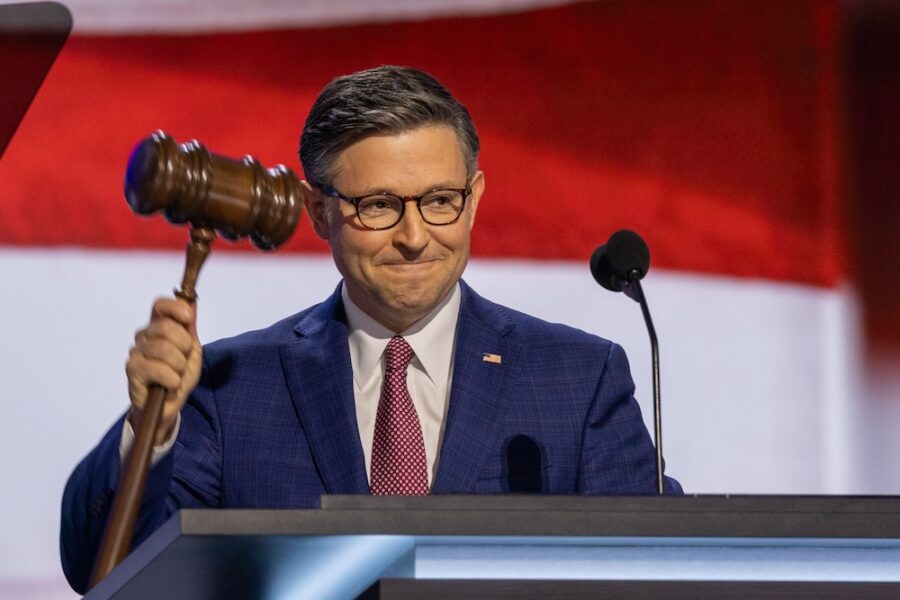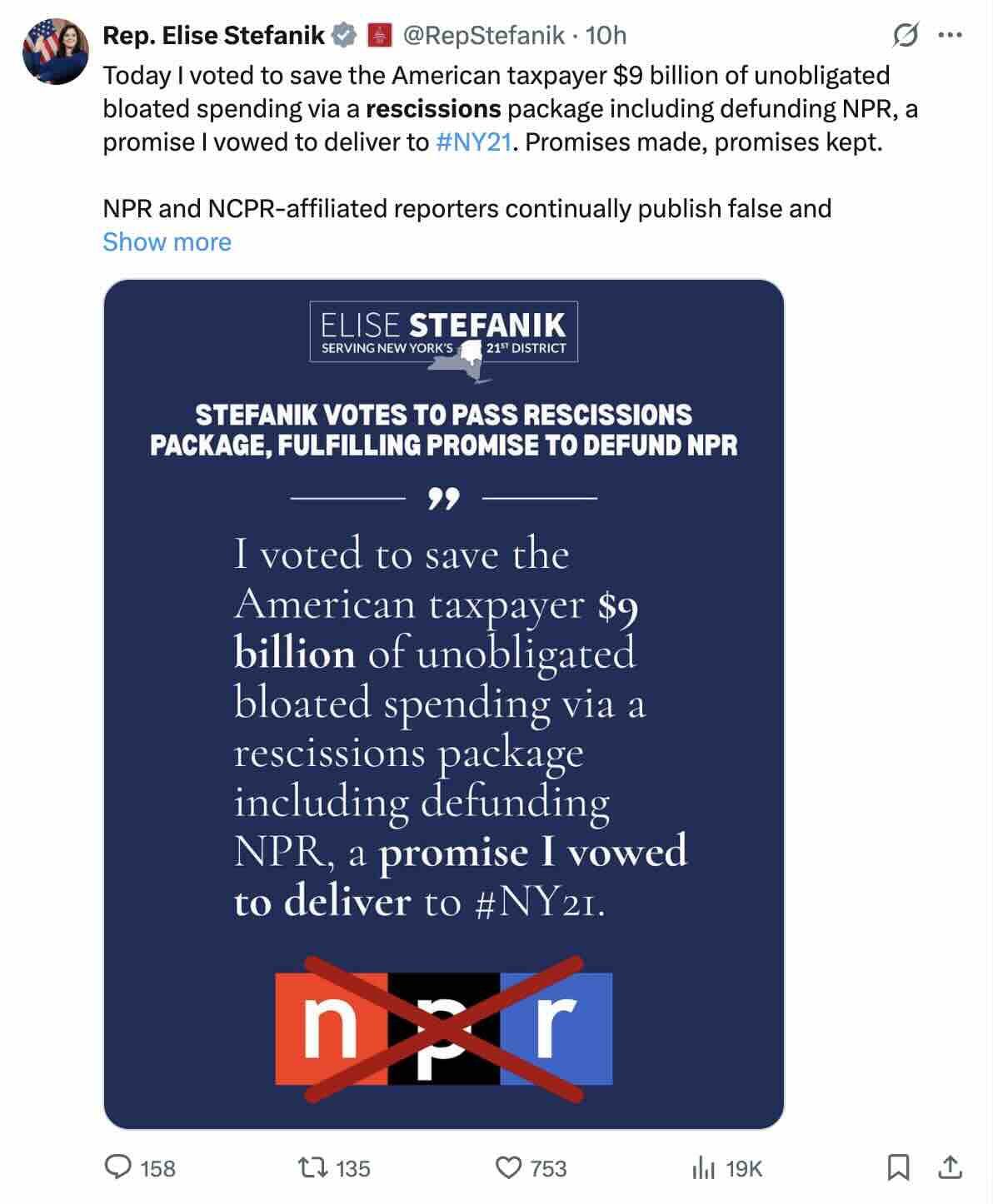Politics
BREAKING: NPR To Be Defunded For Good

The era of government handouts for NPR is coming to an end after the U.S. House of Representatives voted late on Thursday to strip the public broadcaster of underwriting in its annual budget.
Speaker Mike Johnson (R-LA) wasted little time in marshaling votes for the $9 billion rescission package, which trims $1.1 billion from the Corporation for Public Broadcasting, the entity that, since the 1960s, has buttressed the budgets of NPR, PBS, and local public radio and television stations across the country.
The package also includes significant foreign aid cuts, though $400 million in funding for AIDS prevention as part of the PEPFAR program was restored to retain support from more moderate members in the House and U.S. Senate. The bill now goes to President Donald Trump’s desk for his signature.
Following the vote, NPR CEO Katherine Maher called the cuts an “irreversible loss” for the media outlet she has helmed since 2024. She warned the effect would be “an unwarranted dismantling of beloved local civic institutions, and an act of Congress that disregards the public will.”
“Public funding has enabled the flourishing of a uniquely American system of unparalleled cultural, informational, and educational programming, and ensured access to vital emergency alerting and reporting in times of crisis — all for about $1.60 per American, every year. Parents and children, senior citizens and students, tribal and rural communities — all will bear the harm of this vote,” Maher said.

The House’s 216-213 vote also affirmed Senate amendments to protect certain food assistance programs targeted for reductions in the Big, Beautiful Bill signed earlier this month, the latest sign that Republicans are growing wary about the repercussions those cuts may have on their reelection prospects, despite not going into effect until after the midterms.
“This bill tonight is part of continuing that trend of getting spending under control. Does it answer all the problems? No. Nine billion dollars is a good start,” House Majority Leader Steve Scalise (R-LA) told Politico.
Joining Democrats in opposition were GOP Reps. Mike Turner (R-OH) and Brian Fitzpatrick (R-PA), the latter being one of two who voted against the Big, Beautiful Bill as well. That put a target on his back as media allies of the president vowed to recruit a primary challenger against Fitzpatrick and Thomas Massie (R-KY), the libertarian lawmaker who attempted to lead a small uprising to kill the bill.
Shrewd procedural moves by Johnson and Scalise ensured that the bill was passed with minimal votes and reached Trump’s desk by Friday, the deadline by which the rescissions request would expire and the administration would be forced to spend the money as originally intended by Congress.
Republicans who have expressed reservations about the Trump administration’s unilateral reductions in government spending were back on board Thursday night, crediting Office of Management and Budget Director Russ Vought with making recommendations to Congress rather than pursuing a go-it-alone cost-cutting strategy.
“Our enthusiasm, the president’s enthusiasm to send additional packages… I think it’s likely you’ll see an additional package,” Vought told reporters at the White House earlier in the day, Roll Call reported.

